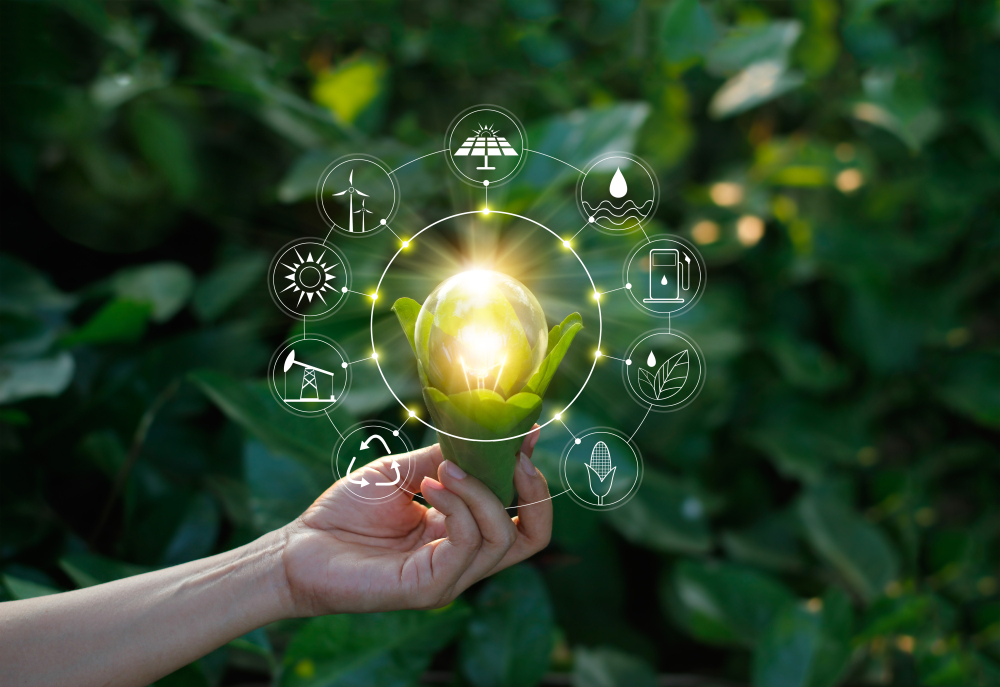Contact Us Today!
(555) 555-5555 | SALES@SOLENTIAL.COM
Or, fill out the form below and we'll get right back to you.
(555) 555-5555 | SALES@SOLENTIAL.COM
Or, fill out the form below and we'll get right back to you.


In late January, the leaders of the largest multinational companies in the world gathered in Davos, Switzerland and online for the 2021 World Economic Forum, a meeting aptly called “The Great Reset.” They weren’t there to ski. They were there to discuss the need for businesses to step up their sustainable energy (plus other) initiatives and the importance of reporting back to investors, customers, and other stakeholders on their environmental impact.
It was, as you might guess, a deep discussion.
Among other things, forum attendees prioritized the need to reduce greenhouse gas emissions. The rubber met the road when 60 global companies, companies like IBM, Mastercard, Sony and Unilever, pledged to make non-financial reporting around their environmental efforts as important and rigorous as their financial reporting. The ultimate goal is to meet net carbon neutrality goals by 2035 and in so doing, set the standard for others around the world to follow.
So why is a solar energy solutions company writing about something as esoteric as “The Great Reset” of multinational companies and their environmental priorities? Truth be told, Solential Energy has been busy advocating for and advancing our own reset of the energy industry—from carbon—based fossil fuels to renewable solar energy – across the Midwest for more than a decade. With each commercial solar system we install in a school, wastewater treatment facility, business, farm, and correctional facilities, we’re helping customers reduce greenhouse gas emissions and achieve a host of other benefits. We think it’s pretty cool that IBM, Mastercard, Sony, Unilever, and 56 other corporate CEOs are following our lead and making sustainable energy strategies an official part of their businesses.
So what exactly is a sustainable energy strategy?
 A sustainable energy strategy is an action plan with measurable milestones that combines energy efficiency, energy conservation, and ideally, the replacement of fossil fuels with renewable energy sources such as solar or wind generated energy. Such strategies aren’t just for large global companies. Any entity, whether government, nonprofit or business, as well as we as individuals, benefit greatly from:
A sustainable energy strategy is an action plan with measurable milestones that combines energy efficiency, energy conservation, and ideally, the replacement of fossil fuels with renewable energy sources such as solar or wind generated energy. Such strategies aren’t just for large global companies. Any entity, whether government, nonprofit or business, as well as we as individuals, benefit greatly from:
A sustainable energy strategy makes sense. What next?
 For more than a decade, Solential has worked with customers across the Midwest and the Caribbean on designing, installing, and maintaining commercial solar arrays and battery storage. Now, we’re taking our efforts a step further, partnering with Trane Technologies to help communities, schools, businesses, and organizations across Indiana and portions of the Midwest develop and implement their own groundbreaking sustainable energy strategies.
For more than a decade, Solential has worked with customers across the Midwest and the Caribbean on designing, installing, and maintaining commercial solar arrays and battery storage. Now, we’re taking our efforts a step further, partnering with Trane Technologies to help communities, schools, businesses, and organizations across Indiana and portions of the Midwest develop and implement their own groundbreaking sustainable energy strategies.
Our sustainable energy strategies are always customized to the customer. There are three steps we follow to get started:

Ready to reset your approach to energy? We’ll continue to share helpful information on reaching net carbon neutral goals, energy efficiency and cost savings goals, as well as highlight some exciting stories on customers like the Jasper County Jail in northwestern Indiana that recently went through an entire sustainable energy makeover. Definitely watch this space for more. I would also invite you to connect with me, Corey Miller, who leads up Solential’s sustainable energy solutions team. Feel free to text or call me at 317-627-4530 or cmiller@solential.com.